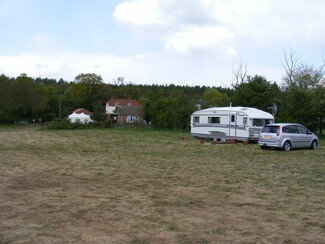Have your say? - Consultation on Traveller Local Plans cannot be an excuse to give Anti-Gypsy prejudice a platform

By Brigitta Balogh and Colin Clark
From this month, various Local Councils in England and Wales are consulting on their Traveller Local Plans (TLPs). When making local plans, councils such as Maidenhead, Stratford-On-Avon and Wokingham, as examples, are required to consider the potential social, environmental and economic impact as a result of the TLP. They also need to think about any likely ‘damages’ (this is the terminology employed) that might be stopped or minimised, as well as the gains and benefits of placing sites in the selected locations.
The TLP’s are very important. Councils have a legal responsibility, via the Housing and Planning Act (2016), to assess and plan for Travellers, Gypsies, Showpeople and boat dwellers in their geographical areas. The Plans help establish how land (and waterways) are used and what the relevant planning policies are. Once TLP’s are adopted by a Council they are then used, in theory, to inform much broader debates on Council Development Plans for their local boroughs and how applications for planning are then considered.
Even Council leaders, especially those with an eye on planning aspects, acknowledge that it is important to get Traveller accommodation, especially the location of sites and number of pitches, right. We can see exactly why: if the Council sites are of good build quality, well positioned/located, of a sufficient size, as well as resourced and managed properly, then it reduces the likelihood for roadside sites, or ‘atchin tans, in the area. That is, in Council-speak, ‘unauthorised encampments’. The costs of evictions in financial terms, let alone the human costs, is a great concern in an era of austerity and public service cuts.
But here lies the ‘catch-22’ type problem. Councils need to ensure that their sites are close to the key public services that we all take for granted, such as education, health, welfare and employment. These services need to be accessible and in close proximity. But, settled residents, as we know all too well, are much less likely to want Traveller sites too close to their housing estates. The common-held fear is that Traveller sites will lower property values, as well as lead to anti-social behaviour. But is this really true?
There is a case in point here, although admittedly it is now dated. Back in 1996, the Joseph Rowntree Foundation commissioned Tom Duncan, of The Planning Exchange in Glasgow, to examine the views held by settled non-Traveller neighbours on three different Traveller sites. In his findings, Duncan reports that many of the preconceptions and ideas held by non-Traveller neighbours quickly dissipated after a few months of the sites being established. Expected problems did not materialise, services were able to manage perfectly well and the official Council sites were seen as contributing to good relations between neighbours. This is not an uncommon finding. Like everywhere, getting to know your neighbours is what matters most.
The point is that in offering consultation sessions and meetings to local residents these cannot be mere forums for racism to be aired. Such gatherings need to be chaired effectively and led by reference to the available factual evidence. The meetings need to actively include and engage with Gypsies, Travellers, Showpeople and boat dwellers who live in and around the local area. When prejudice is publically aired it needs to be shut down and refuted by evidence, lived experience and reason. It is only through this type of communication that the TLP consultations will be successful and productive for all parties.

Read other legal and campaign blogs by Brigitta Balogh and Colin Clarke by clicking on the links below:
COURT INJUNCTIONS AGAINST TRAVELLER CAMPS ARE 'FORCED SETTLEMENT'